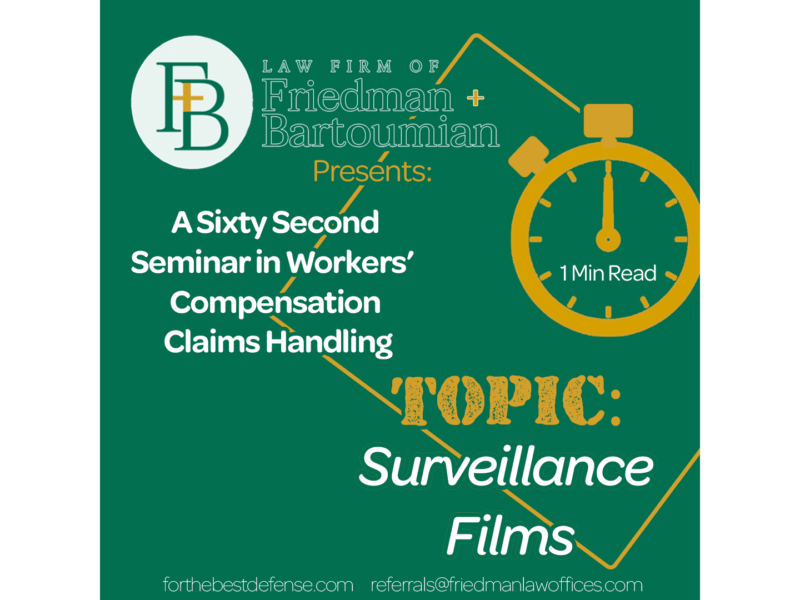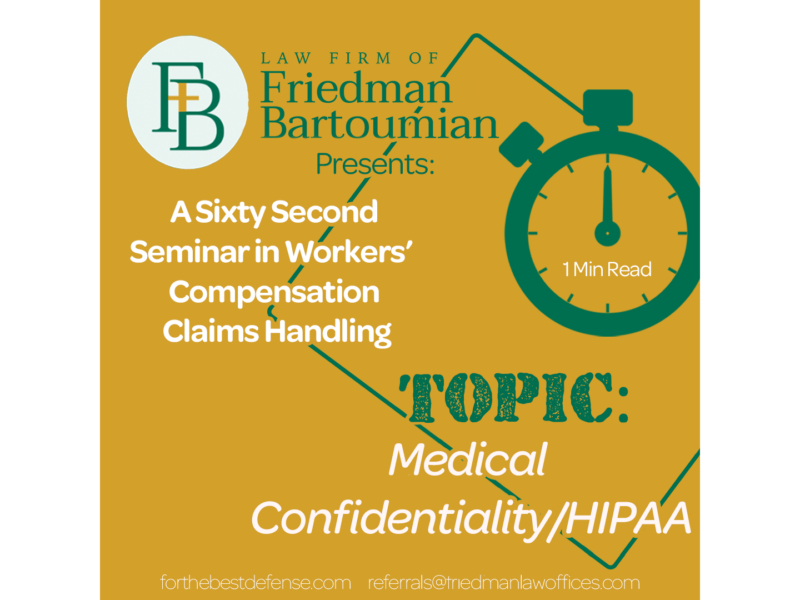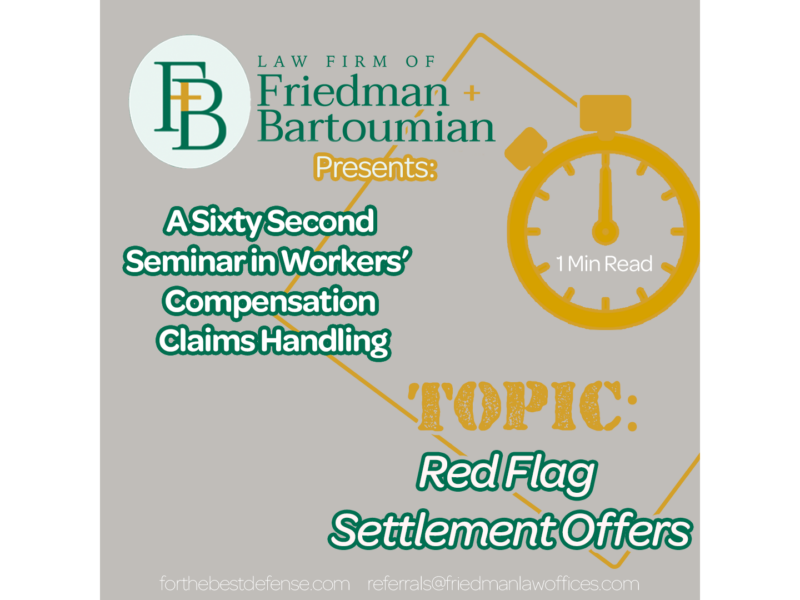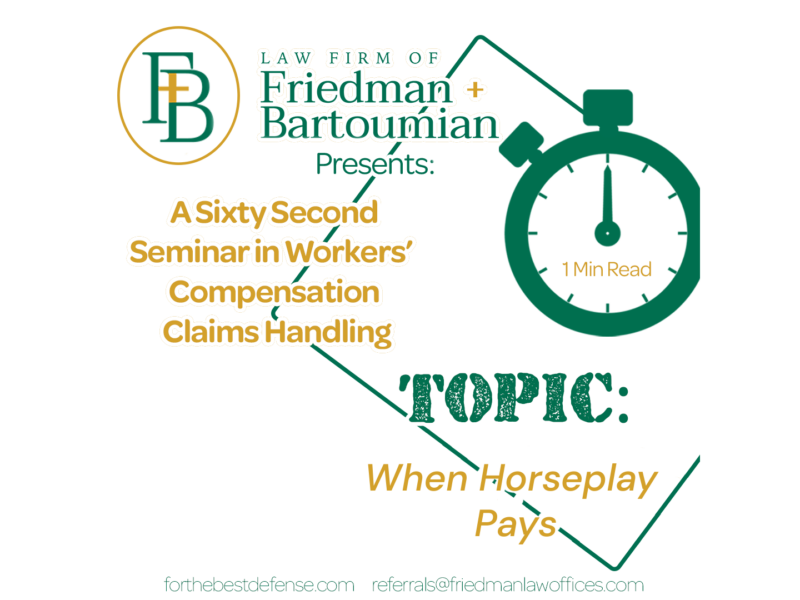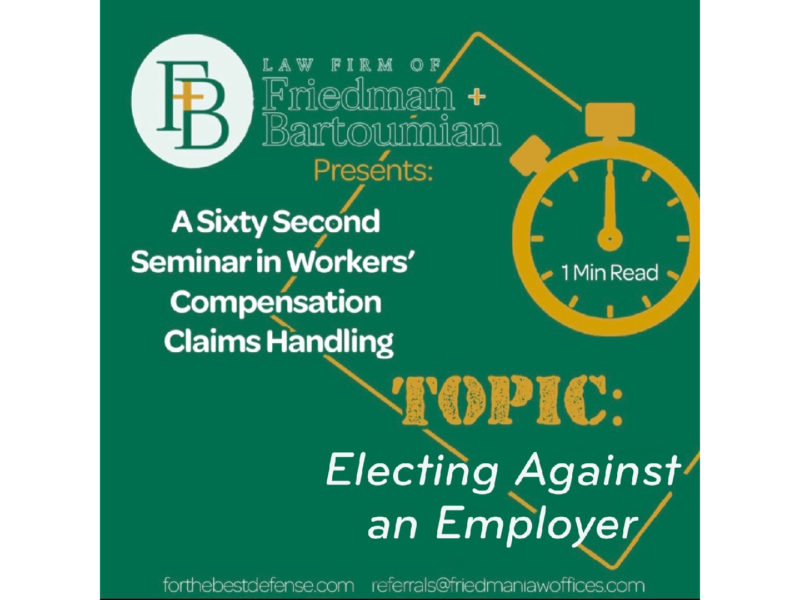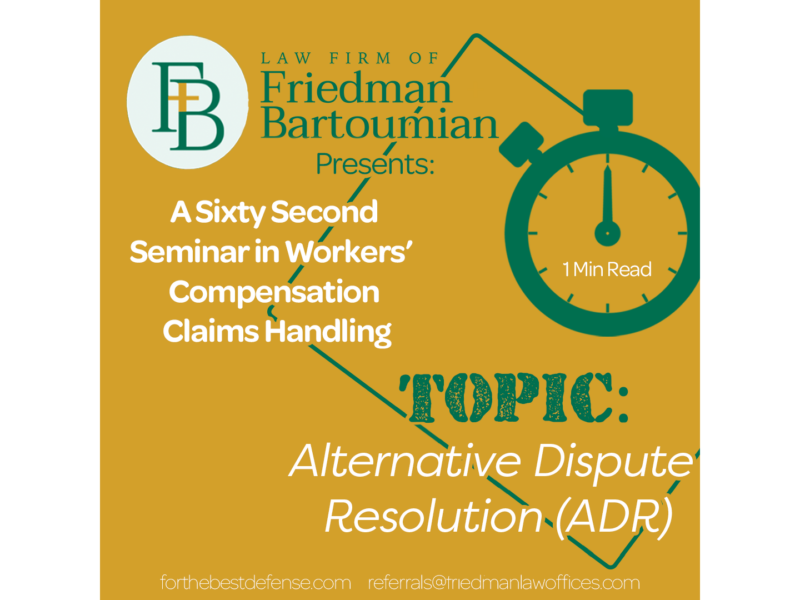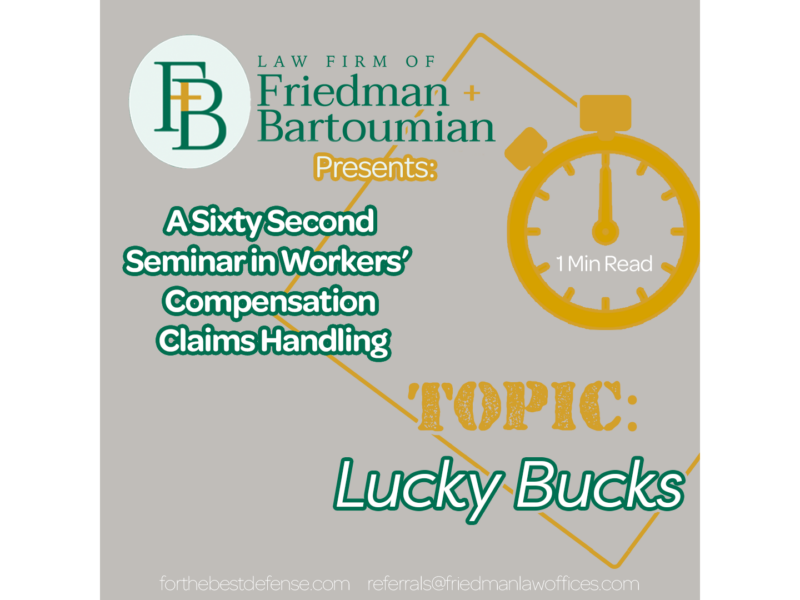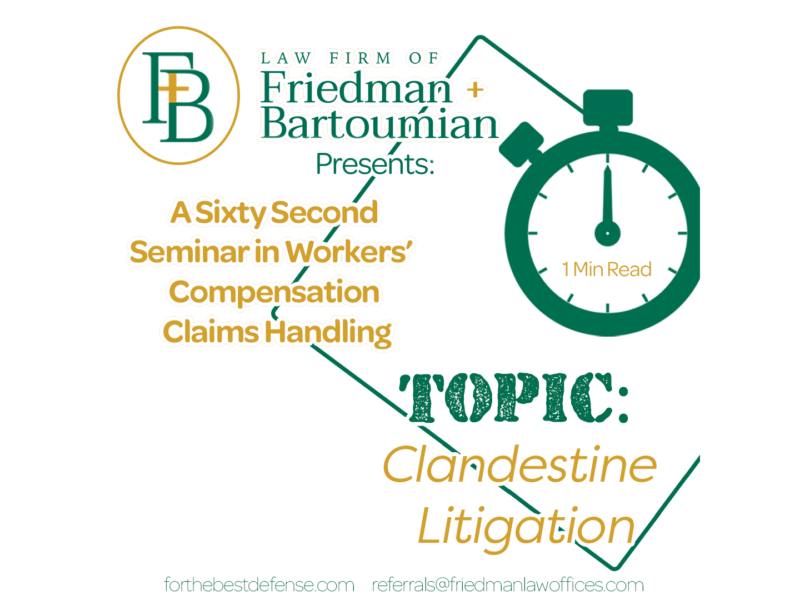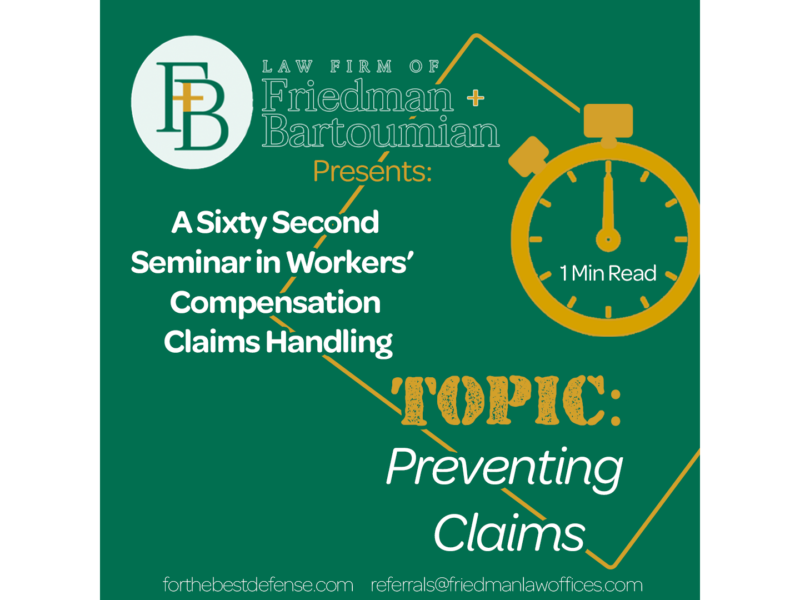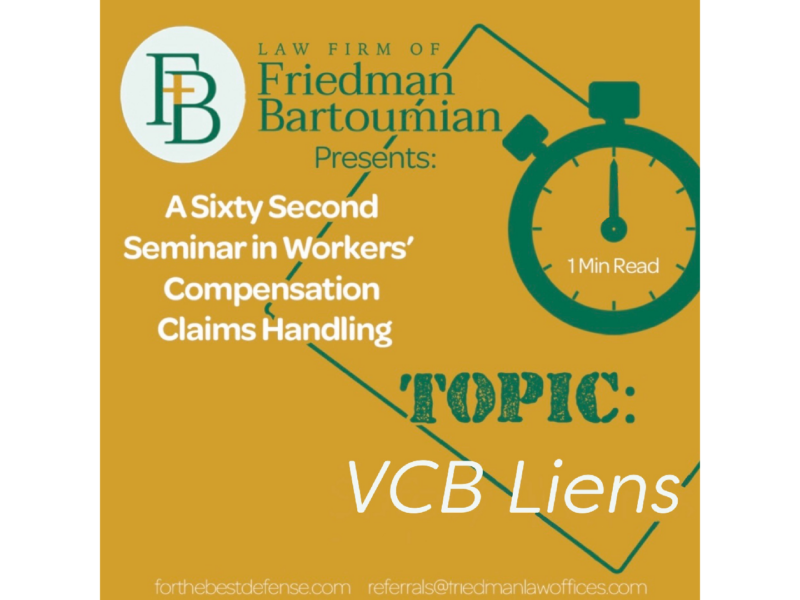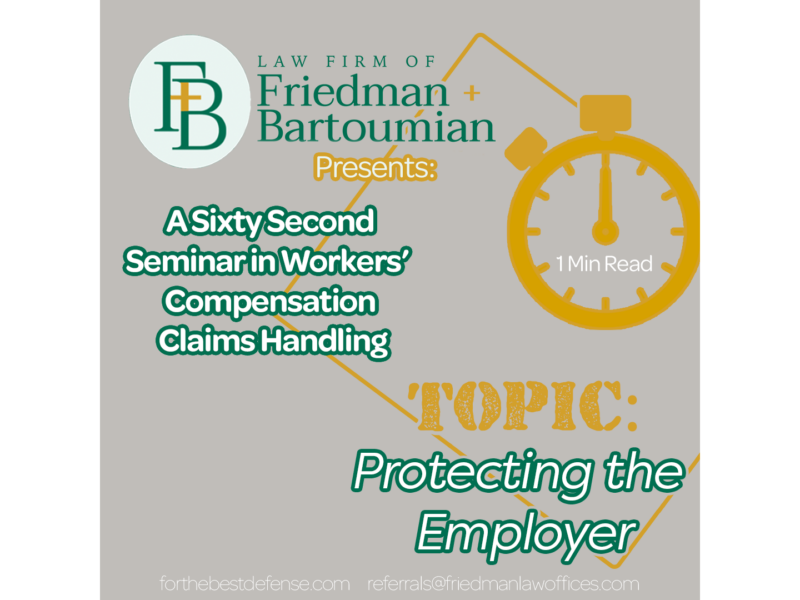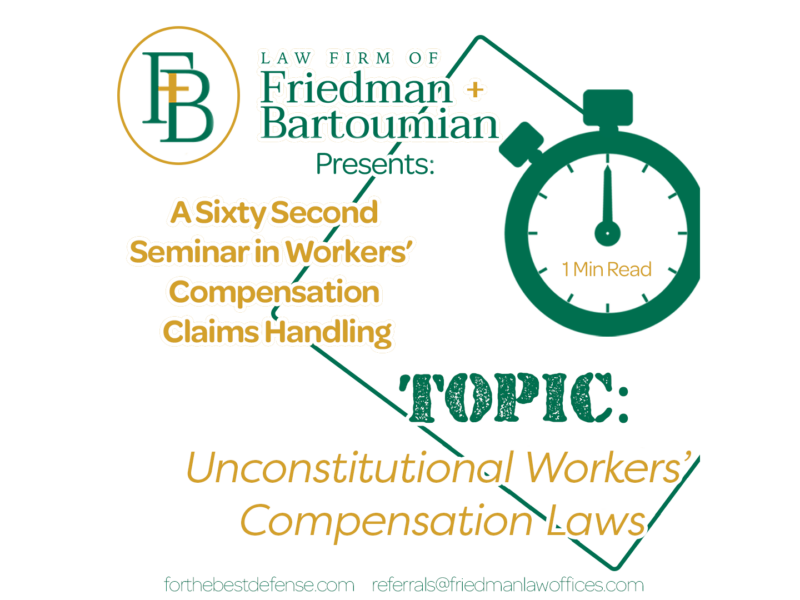It is quite common in a litigated claim for an applicant’s attorney to demand disclosure and service of surveillance videos. Such a demand is usually found in the attorney’s Notice of Representation, which advises the employer that the applicant is now represented by legal counsel. In today’s blog our readers will learn that even when …
Surveillance Films: A Sixty-Second Seminar in Workers’ Compensation Claims HandlingRead More

